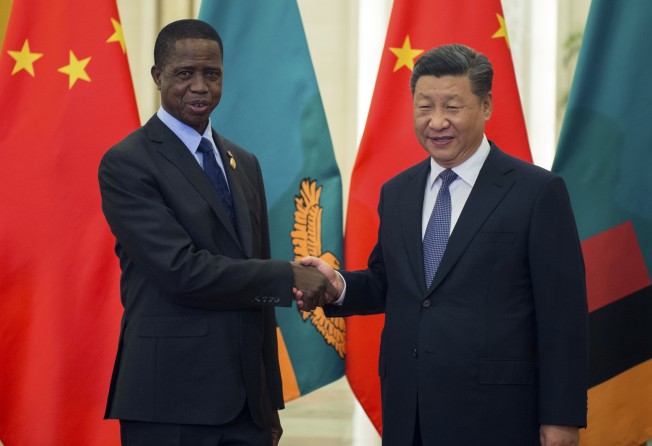
From Pakistan to Zambia, how does China pick its ‘ironclad’ friends?
- Beijing shares historical and political ties with a dozen or so nations across Asia and Africa that ‘respect each other’s core interests’, observers say
- With the ‘ironclad’ term surfacing repeatedly in the week of the CCP’s centenary, analysts have weighed in on its origins and meaning
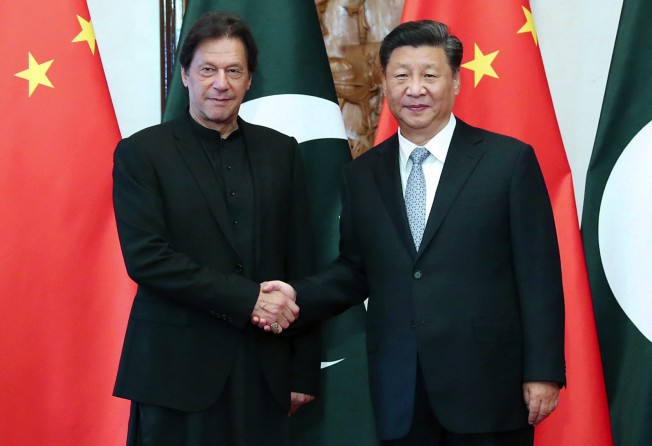
In the English versions of China’s diplomatic statements, few words speak as highly of Beijing’s close ties with certain countries as “ironclad”.
Diplomats have frequently used the term to describe the “exceptional” relationship between China and Pakistan, which has given Beijing a strategic foothold into South Asia and provided Pakistan with a counterweight to its arch-rival India.
When Foreign Minister Wang Yi met his Serbian counterpart Nikola Selakovic at the Chinese city of Guiyang in May, he hailed the country at the crossroads of Central and Southeast Europe as China’s “ironclad” friend in Europe.
Last week, during the 100th anniversary of the Chinese Communist Party (CCP), the term was used to describe Beijing’s ties with Cambodia and other nations, casting the spotlight on its origins.
Analysts said historical relations and strong political ties are major considerations, but the term is often used on countries whom China may or may not share strategic ties with but is nonetheless keen to maintain as good friends and partners.
Countries deemed to have an “ironclad” relationship with China would also not pose threats to Beijing’s interests, they said.

What’s in a name?
In the Chinese language, tie gan, or “ironclad”, can be used in two ways. As a noun, it means iron railings or iron bars, and as an adjective, it means “rock solid”, especially when used to describe a like-minded friend. When used to describe supporters, it means “diehard” or “hardcore” fans.
While many analysts are at odds as to when Beijing began employing the term to describe its close friends, some said it appeared to have cropped up more frequently in recent years.
Ejaz Hussain, an associate professor at the Iqra University in Pakistan, said the term had appeared in academic texts dating back to the late 1970s.
“Ironclad is more of a jargon than an well-established perspective or official policy,” Ejaz said, adding that the United States also uses the term, most notably in its relations with Japan, especially in recent months.
Wang Yiwei, director at the Renmin University of China’s Institute of International Affairs, said that while China had an official list of countries with whom it shared comprehensive or strategic partnerships, it did not have a similar list for “ironclad” countries.
“Ironclad means close relations and strong communication,” he said, adding that such friends were more likely to “respect each other’s core interests” instead of betraying each other.
The term is also sometimes used on countries which are not China’s strategic partners, but nevertheless agree on mutual support despite the absence of a treaty or agreement, Wang said.
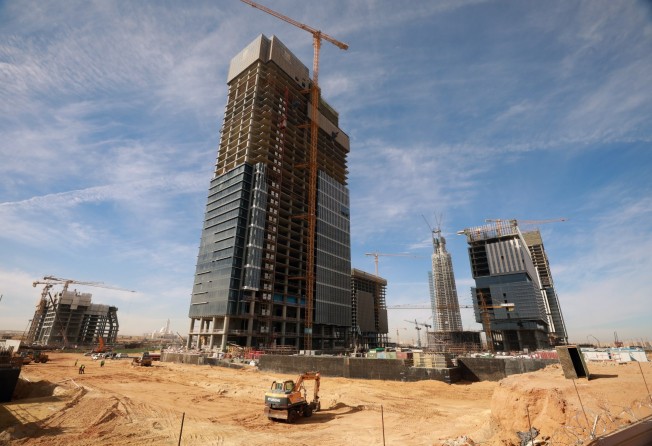
Analyst Chucheng Feng, a partner at China-focused independent research company Plenum, said “ironclad” nations were also known as “all-weather” friends. As most of them were geographically distant and did not have a stake in China’s most pressing interests, they were therefore not a threat to Beijing, he noted.
“However, I do not think the ‘all-weather friends’ (concept) represents China’s official diplomatic priorities,” Feng said. “The term carries more historic weight than realistic calculation.”
Chinese media reports suggest that up to 14 countries fall under the “ironclad” category: Brazil, Egypt, Ethiopia, Kenya, Mali, Malta, Namibia, Pakistan, Romania, Serbia, Tanzania, Yemen, Zambia and Zimbabwe.
Others pointed out that countries such as Belarus, Cambodia, Cuba, Myanmar and Ukraine could also be part of the list due to their strong historical and political relations with China.
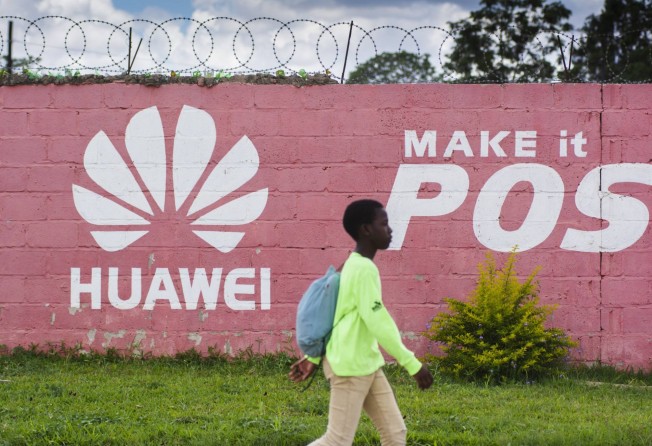
Time-honoured friends?
When China began its tumultuous Cultural Revolution in 1966, it was under diplomatic siege and counted on African states as some of its best friends.
Many of them helped Beijing obtain membership at the United Nations, Feng said, adding that China used the term “all-weather” in 1967 to describe its relationship with Zambia for the first time.
In 1971, the UN General Assembly voted to admit China and expel Taiwan, and votes from African countries were said to have been vital for Beijing’s admittance.
Manoj Kewalramani, a fellow at The Takshashila Institution who studies China, noted that the phrase “ironclad” has emerged more often under current Chinese leader Xi Jinping’s administration, which began in 2013.
Apart from the deep historical ties, the term “ironclad” has also been used to highlight the relationships in which Beijing can “be assured of greater political certainty”.
The best-known example is the friendship between China and Pakistan, both of whom have called each other “iron brothers”. Their seven-decade relationship has been built on Beijing’s economic, political, military and nuclear assistance to Islamabad, and both countries’ common distrust towards India.
Sino-Pakistan relations are categorised by both sides as an “all-weather strategic cooperative partnership”, and according to Iqra University’s Ejaz, ties developed in the mid-1960s are now being consolidated under China’s Belt and Road Initiative, an initiative to improve infrastructure and connectivity worldwide including Pakistan.
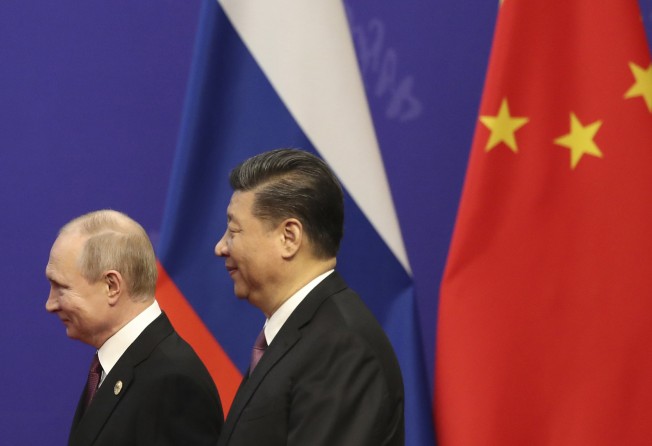
Who can join the club?
China’s club of “ironclad” friends does not include strategic partners such as Russia, which upgraded its ties with China to form a “comprehensive strategic partnership of coordination for a new era” two years ago, said Kewalramani.
“Yet, this is among the most strategically significant relationships for China today,” he noted, adding that the 2019 move not only placed the Sino-Russian relationship at the “top of the pecking order” when it came to China’s strategic partnerships, but also gave it “a far broader scope than your run-of-the-mill strategic partnerships”.
The decision not to use the term “ironclad” to describe Beijing’s ties to Moscow also reflected China’s “lingering sense of uncertainty [with the Russians], however faint it may appear”, Kewalramani added.
Traditionally close several decades ago, China split from the then Soviet Union in the 1950s due to ideological differences, especially after former Soviet leader Nikita Khrushchev denounced Stalin and began the process of de-Stalinisation in 1956.
Since the end of the Cold War in 1991, China and Russia have signed a number of agreements to end their decades-long territorial disputes, but Chinese public sentiment, especially in recent years, still simmer over the “lost territory” that had once belonged to China.
James Char, an associate research fellow with the China Programme at Singapore’s S. Rajaratnam School of International Studies, said Beijing’s “ironclad” ties with countries were based more on tangible interests such as geopolitical calculus, common security concerns and commercial interests and less on common values. Therefore, “ China does not have any stable or consequential alliance relationships with these countries in the conventional sense”, Char said.
“Beijing’s so-called ironclad relations are not as ironclad as it is purported to be,” he added.
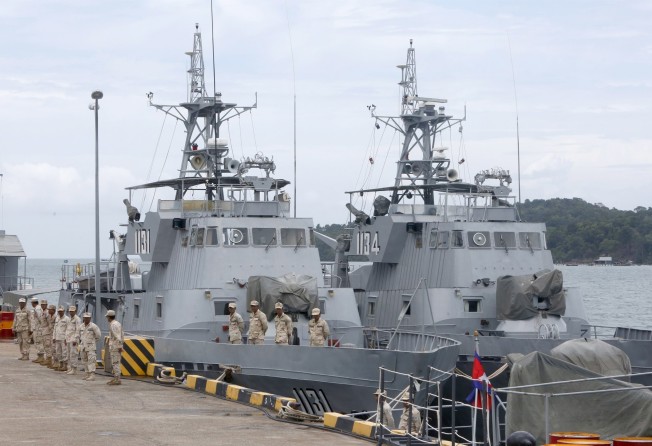
Cambodia: the latest addition?
In Southeast Asia, Sino-Cambodian ties started to be characterised as “ironclad” around 2016, said Sovinda Po, a research fellow at the Cambodian Institute for Cooperation and Peace.
He noted there were gains and pitfalls associated with the categorisation, however.
While closer links to China has afforded Cambodia greater economic and other support, it’s also complicated its ties with neighbours such as Vietnam, which has been concerned that Beijing could undermine Hanoi’s own long-standing influence in Phnom Penh.
In the mid-19th century, Vietnamese forces occupied Cambodia for several years. Later in 1978, Vietnam invaded Cambodia on the pretext of removing the Khmer Rouge regime from power and only left the country a decade later.
In recent years however, economic relations between Vietnam and Cambodia have remained robust, with trade in 2018 reaching US$4.7 billion, an increase of 24 per cent over the previous year.
Still, recent reports that China is considering building a naval base in southwest Cambodia has raised alarm bells in Vietnam, said Po, also a doctoral student in international affairs at Australia’s Griffith University.
Over the past year, tensions have mounted between Phnom Penh and Washington over the demolition of two US-funded buildings at Cambodia’s Ream Naval Base in Sihanoukville, triggering concerns that Beijing had been given privileged access to the strategically located base.
From the stance of Vietnam and the US, the deepening Sino-Cambodian relationship signifies Phnom Penh has to comply with Chinese requests or demands, Po said.
“With this perception, Vietnam and the US will put more pressure on Phnom Penh in ways that can limit Cambodia’s engagement with China,” Po said.
Kewalramani said: “Ironclad countries will have to align with China’s policy priorities, particularly when it comes to Beijing’s core interests.”